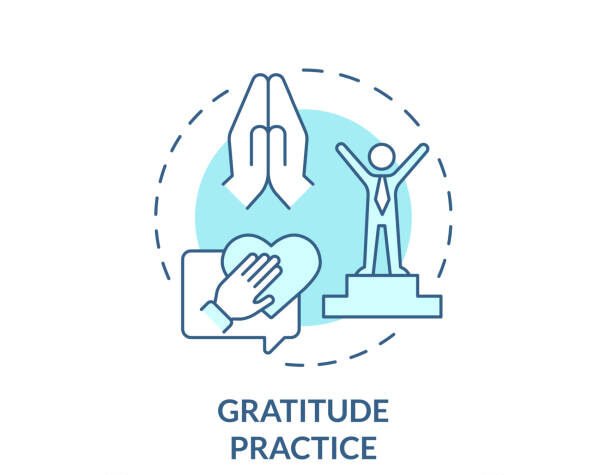
Personal growth is a transformative journey of exploring and enhancing oneself mentally and emotionally. It involves conscious efforts to become a better version of oneself. This journey can lead to profound changes in various aspects of life, including relationships, career, and overall well-being. It may seem challenging initially, but by embarking on this journey, individuals can unlock their full potential and experience significant positive transformations.
Cultivate Self-Awareness:
Cultivating self-awareness is the cornerstone of personal growth and development. It involves taking the time to delve into your inner thoughts, feelings, and behaviors, and gaining a deeper understanding of yourself. This process can be facilitated through various practices such as journaling, meditation, or simply spending quiet moments alone. By engaging in these practices, you create space for introspection and reflection, allowing you to uncover your strengths, weaknesses, and patterns of behavior. Through this self-examination, you begin to recognize the factors that drive your actions and decisions, as well as the impact they have on your life and the lives of those around you. Developing self-awareness is not merely about acknowledging your positive attributes; it also involves confronting your flaws and areas in need of improvement. This level of honesty and self-reflection can be challenging, but it is essential for personal growth. By embracing your vulnerabilities and limitations, you open yourself up to opportunities for growth and development. Furthermore, self-awareness enables you to set meaningful goals that align with your values, aspirations, and capabilities. By understanding your strengths and weaknesses, you can identify areas where you want to improve and take proactive steps towards achieving your objectives. IN essence, self-awareness is a journey of self-discovery and self-acceptance. It empowers you to live authentically, make informed choices, and cultivate a deeper sense of fulfillment and purpose in life. By committing to this ongoing process of introspection and self-exploration, you pave the way for continuous personal growth and transformation.
Set Clear Goals:
Setting clear and achievable goals is a pivotal step in the journey of personal growth and development. When armed with a deeper understanding of oneself, individuals are better equipped to chart a course towards their aspirations. Goals provide a sense of direction and purpose, serving as beacons guiding one through life’s complexities. Whether pertaining to career advancement, nurturing relationships, improving health, or enhancing personal skills, these objectives act as milestones marking progress along the path of self-actualization. Breaking down these goals into smaller, actionable steps is paramount. This granular approach not only makes the objectives more manageable but also fosters a sense of accomplishment as each step is completed. By crafting a well-defined plan, individuals can navigate the challenges and uncertainties that inevitably arise, inching closer towards their desired outcomes. Moreover, regular reflection and revision of these goals are crucial. As individuals evolve and circumstances change, so too may their aspirations. By periodically reassessing and adjusting their objectives, individuals ensure that they remain aligned with their evolving values, interests, and aspirations. IN essence, setting clear and achievable goals provides a roadmap for personal growth. It empowers individuals to harness their potential, overcome obstacles, and ultimately realize their fullest potential. Through diligent planning, persistent effort, and adaptability, individuals can embark on a transformative journey towards fulfillment and success.
Embrace Continuous Learning:
Embracing continuous learning is an essential component of personal growth, a journey that lasts a lifetime. It involves maintaining a mindset of curiosity and open-mindedness, constantly seeking opportunities to broaden one’s knowledge and skills. This can take various forms, such as enrolling in courses, delving into books, participating in workshops, or seeking mentorship. By stepping out of one’s comfort zone and embracing new experiences, individuals not only expand their capabilities but also cultivate adaptability and resilience. Each new skill acquired or piece of knowledge gained contributes to personal development, enriching one’s life and enabling them to navigate the complexities of an ever-changing world with confidence and purpose.
Practice Gratitude and Mindfulness:
Cultivating gratitude and practicing mindfulness are powerful tools for personal growth and well-being. Gratitude involves acknowledging and appreciating the good things in your life, no matter how small or seemingly insignificant they may be. By taking time each day to reflect on what you are grateful for, you can shift your focus from what you lack to what you have, fostering a more positive outlook on life. Mindfulness, on the other hand, is the practice of being fully present in the moment, without judgment or attachment to thoughts or emotions. It involves paying attention to your thoughts, feelings, bodily sensations, and the world around you with openness and curiosity. By practicing mindfulness, you can develop greater self-awareness and emotional intelligence, as well as cultivate a sense of inner peace and clarity. Incorporating gratitude and mindfulness into your daily routine doesn’t have to be complicated. It can be as simple as taking a few moments each morning or evening to reflect on the things you are grateful for, or practicing mindfulness during everyday activities like eating, walking, or even washing dishes. By making these practices a regular part of your life, you can experience profound changes in your mindset, overall well-being, and relationships with others.

Foster Positive Relationships:
Fostering positive relationships is crucial for personal growth and well-being. The individuals we choose to surround ourselves with can greatly influence our outlook on life, our behaviors, and our overall happiness. It’s important to seek out relationships that bring out the best in us, where we feel supported, encouraged, and inspired to pursue our goals and aspirations. On the flip side, it’s equally important to recognize when certain relationships are detrimental to our growth and well-being. These may be individuals who constantly bring negativity into our lives, drain our energy, or discourage us from pursuing our dreams. While it can be difficult, distancing ourselves from such relationships can be necessary for our own mental and emotional health. Cultivating empathy, compassion, and effective communication skills are essential for building and maintaining healthy relationships. Empathy allows us to understand and connect with others on a deeper level, while compassion fosters kindness and understanding in our interactions. Effective communication enables us to express ourselves clearly, listen actively to others, and resolve conflicts constructively. By surrounding ourselves with positive influences and nurturing healthy connections with others, we create a supportive environment that fosters personal growth, resilience, and overall well-being.
Take Care of Your Physical and Mental Well-being:
Taking care of your physical and mental well-being is fundamental for personal growth and overall happiness. It involves prioritizing self-care in various aspects of your life. On the physical side, maintaining a balanced diet is crucial. This means nourishing your body with nutritious foods that provide the energy and nutrients it needs to function optimally. Regular exercise is also important for keeping your body strong and healthy. Whether it’s going for a run, practicing yoga, or lifting weights, finding physical activities you enjoy can make it easier to stick to a routine. Equally important is getting enough sleep. Quality sleep is essential for your body to rest and recharge, allowing you to wake up feeling refreshed and ready to tackle the day ahead. Establishing a consistent sleep schedule and creating a relaxing bedtime routine can help improve the quality of your sleep.Managing stress effectively is another key aspect of maintaining overall well-being. Stress is a natural part of life, but excessive stress can take a toll on your physical and mental health. Finding healthy coping mechanisms such as mindfulness meditation, deep breathing exercises, or engaging in hobbies can help you manage stress more effectively. On the mental well-being front, it’s important to take time for activities that bring you joy and relaxation. Whether it’s spending time outdoors in nature, pursuing creative hobbies, or simply enjoying quality time with loved ones, these activities can help uplift your mood and reduce feelings of stress or anxiety. Additionally, seeking support from a therapist or counselor can be incredibly beneficial if you’re struggling with mental health issues. Talking to a professional can provide you with coping strategies, tools, and support to navigate through challenging times and improve your overall well-being.

